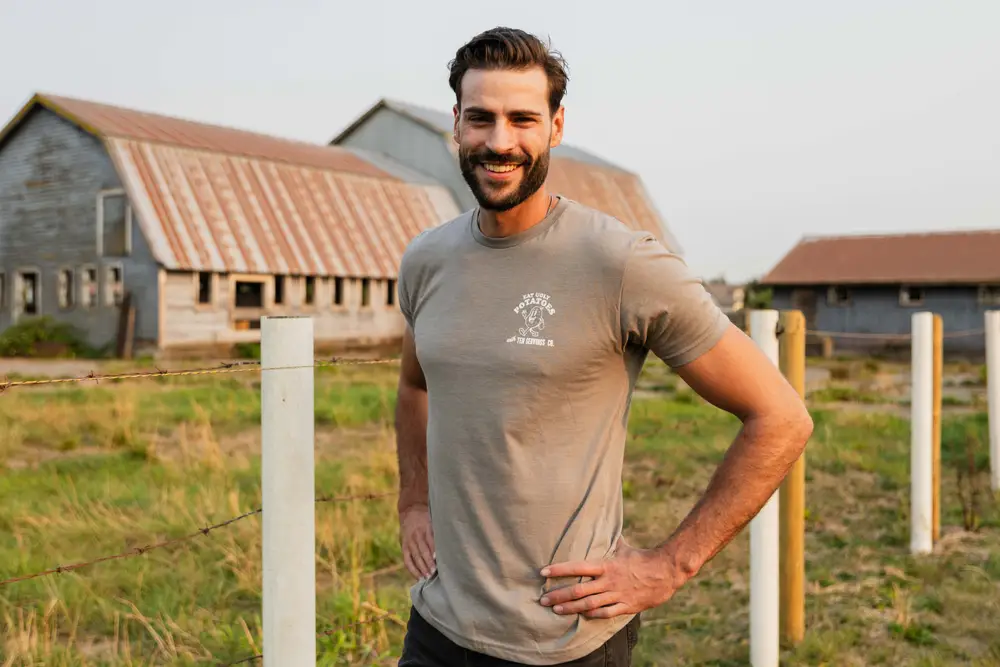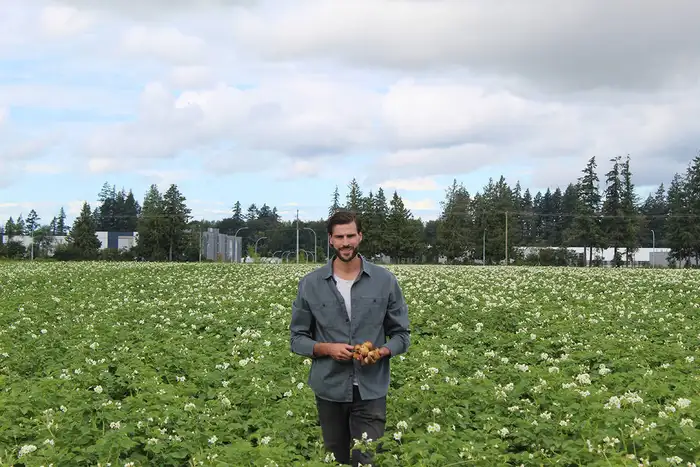I took a 50% pay cut to leave my sales job and work on a potato farm. I have no regrets.

Tyler Heppell left his sales job to work on his family farm.
As a fourth-generation farmer at a 104-year-old potato farm in British Columbia, my dad thought he had hit the lottery when he had three sons.
But alas, none of us wanted to work there.
After graduating with a business degree in 2017, I worked in sales at a Fortune 500 company. In sales, you need to have a “grinder” mentality — work hard, be consistent, and have discipline. Having played team sports all my life, I’m a competitive person, and initially thrived off the challenge.
But four years in, I gradually felt like I was losing my purpose. My days were spent cold-calling, knocking on doors, and trying to make sales week after week. I had to shave every day and went through many suits. There were a million conference calls to attend, and it was all very corporate.

Heppell said he gradually felt purposeless in his sales job.
One day, it hit me that I would rather work with my hands and break a sweat than sit in a room talking to a business owner. I figured I would get more joy out of having a simpler life.
So, in 2022, I resigned. My plan was to work on my family’s farm for a year while I figured out the next steps.
I ended up loving the farm right away
I got that sense of satisfaction I felt I was missing in the sales world — the sense of a good, hard day’s work. It’s a feeling you can’t buy.
Helping out on the farm as a kid, I didn’t enjoy it. It was a lot of physical labor, and the overall experience was not positive. But coming back as an adult, I was a bigger piece of the puzzle and had responsibility for leading operations and managing teams. I also enjoyed being able to work with my family.
Farming is a lifestyle. My work-life balance took a little bit of a hit at the start. But with innovation, the busy season no longer requires a six-day workweek. So, unlike what my parents’ generation experienced, now there’s an opportunity for work-life balance as a farmer.
I took a pay cut to return to the farm
I made almost 200,000 Canadian dollars in sales, or around $150,000, in one year. As a farmer, I took a 50% pay cut. It was a tough pill to swallow.
But now, I’m realizing that it was still worth it. I learned more about business on the farm than working in a Fortune 500 company.
Thanks to social media, the pay gap has also closed a bit. In 2022, I posted videos on TikTok to raise awareness about farmland that was going to be taken over by the government to be redeveloped. The posts went viral, and my account kept growing.
Now, I post on social media to encourage the next generation to return to farming
In Canada, around 1.6% of people are farmers, according to Statistics Canada. In the next 10 years, 40% of farmers will retire, a report by Royal Bank of Canada found. We’ll need the younger generation to pick up the slack to continue having local produce.
I see farmers as a beacon of hope in each community. At our farm, we have something called Ugly Potato Days. On this day, we give our “ugly” potatoes to our community for free. So, although farmers go through a lot, they can help the communities that they’re in with the rising cost of food and living.

Heppell enjoys being able to give back to the community as a farmer.
ng. I’m also in charge of all the truck drivers because the potato fields are about an hour from our farm. So, I have to ensure we have enough trucks driving back and forth.
Being a farmer is a job that pulls me in a million different directions, but I enjoy it because every day is so different and challenging.
I don’t see myself returning to the corporate world unless I start a business related to agriculture. I’m 30 now and probably have another 30 years of farming left. My goal is to set up the farm to last another hundred years. Hopefully, one day, I’ll have children who decide to take over.






